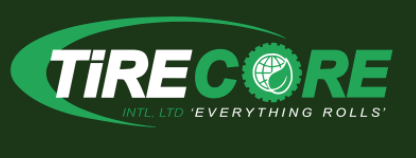
WHY WE SUPPORT THE “CRADLE TO CRADLE” & “CIRCLULAR ECONOMY” FUTURE!
A circular economy is an economic system powered by eliminating waste and the continual use of resources. ... This regenerative approach is in contrast to the traditional linear economy, which has a "take, make, dispose" model of production.
Garry Drisdelle on TireCore helping the Green Circle Economy for over 40 Years!
TireCore™ Intl Wins Best Casing & Tyre Disposal Services Provider at The Recircle Awards! 2022
"The 2022 Recircle Awards Ceremony | The Recircle Awards"
TireCore™ Intl Wins Best Casing & Tyre Disposal Services Provider at The Recircle Awards! 2021
"The 2021 Recircle Awards Ceremony | The Recircle Awards"
The Retreadcast | Episode #14 | Recircle Awards: Winners in Profile
Garry Drisdelle of TireCore Intl Appears on Retreadcast
TireCore Intl were one of the winners at the debut Recircle Awards with their success in the Best Casing & Tyre Disposal Services Provider category. To discuss their win, the CEO Garry Drisdelle appeared in Episode 14 of The Retreadcast.
Episode 14 Features Garry Drisdelle of TireCore Intl
David Wilson, Publisher of Retreading Business interviewed Garry Drisdelle in the most recent instalment of The Retreadcast on their Recircle Awardssuccess along with the state of their business and plans for the future.
Chapters:
00:00 Introduction to Interview with Garry Drisdelle, CEO of TireCore Intl
01:15 TireCore Intl's Development in the Tyre Collection Space of the Tyre Rector Sector
02:14 How is the Current Business of TireCore Intl Structured?
03:25 TireCore Intl's Business Philosophy: Importance of the Circular Economy
05:37 TireCore Intl Consultancy Programme: How does it Work?
06:56 What are the Key Opportunities for TireCore Intl as a Tyre Casings Collector?
07:42 How does Garry feel that their Success in the Recircle Awards will Benefit the Company?
Posted by Charlotte Nahon on 21 Apr 2021
About the author
Charlotte Nahon is the Communications and Digital Executive for Retreading Business. Since 2018, Charlotte has been in the Digital and Communications sector, working in Canada as well as Spain. Her degree is in Communication Studies from the University of Ottawa, and ever since graduating she has been writing for multiple sectors including automotive, energy, education, pharmaceuticals and more.

HOW TIRECORE KEEPS THINGS ROLLING…
At TIRECORE we see the Potential and Environmental Benefits of “Keeping things Rolling”
Since it’s inception TIRECORE has looked to be a leader in the Circular Economy and further maximizing the use of Truck Tires and material to their fullest.
TIRECORE has since become a leader in the procurement of high-quality domestic and import truck tire casings for the retreading industry, including National domestic collection of casings from certified company procurement agents, affiliate brokers, local commercial tire companies and tire recyclers.

Is Retreading Green?
Yes, retreading is very environmentally friendly.
Oil – Retreading conserves oil. The synthetic rubber components in a new passenger tire contain seven to eight gallons of oil. Retreading the same tires uses only two to three gallons of oil! The manufacture of a new medium truck tire requires approximately 22 gallons of oil, but it takes only seven gallons to retread. Every year in North America, the use of retreads saves hundreds of millions of gallons of oil.
Landfill - Millions of tires that would end up in tire piles or in landfill continue their useful lives for thousands of more green miles.








